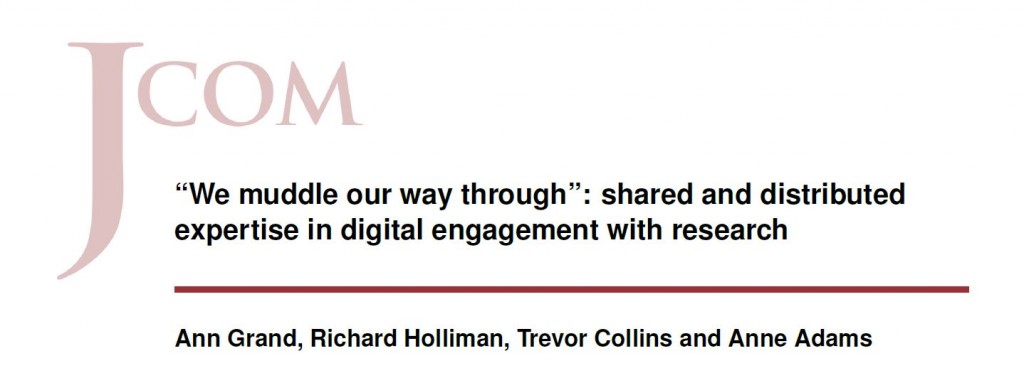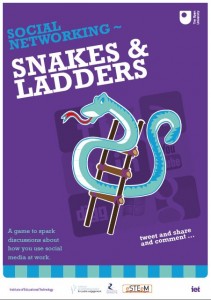Digital media are changing researchers’ roles and simultaneously providing a route for a more engaging relationship with stakeholders throughout the research process. But are they work?
Over the last couple of years I’ve been working with colleagues at the Open University (Ann Grand, now at the University of Western Australia, Trevor Collins and Anne Adams) to explore this issue and how it relates to questions of strategy, operational practices, training, support, and reward and recognition (Holliman et al., 2015).
In attempting to address the overarching question of whether social media are work, we recently published a paper arising from one aspect of a project exploring how university research and professional practices are evolving as researchers engage with stakeholders via digital media to create, share and represent knowledge together (Grand et al., 2016).
In that paper we review the extent to which they are developing multiple identities and functions in their engaged research through digital media. You can access the paper from the following link:
“We muddle our way through”: shared and distributed expertise in digital engagement with research

“We muddle our way through” (Grand et al., 2016)
In the paper we analyse semi-structured interviews with 15 Open University researchers to explore how digital tools are changing researchers’ relationships with their academic peers and non-academic stakeholders.
We found that researchers drew on a range of tools and techniques in their digital engagement. There was no leading digital medium for engaged research; multiple media were deployed, depending on the nature of the research and the stakeholders engaged.
We identified a muddled culture of open, engaged, digital practices where researchers can be characterized as one of three ideal types: ‘highly-wired’, ‘dabbler’ and ‘unconvinced’.
In addressing this muddled culture we argue that undertaking digital engagement with research should be a legitimate activity for researchers. Put simply, it is work.
These activities should be recognized in the same way as other routine research tasks: submitting grant proposals, collecting and analysing data, and writing and presenting research papers.
It follows that engaged research activities should be organised and accounted for within strategic and operational plans, that support mechanisms and training should be in place, and that procedures for reward and recognition should acknowledge those who demonstrate excellence in these forms.
Of course, we also note that not all researchers will welcome this more strategic approach: some prefer to remain free from what they perceive to be institutional meddling in their muddling.
Our findings show that there is limited evidence of systematic changes in practice in terms of researchers’ use of digital tools to support engagement. Work remains to be done in supporting researchers to make such changes.
Increasing expectation of digital engagement, however, is provoking researchers to re-assess their identity as researchers, creating mixed ecosystems of ‘highly-wired’, ‘dabblers’ and the ‘unconvinced’ from which are emerging flexible patterns of mutual support that can respond to varying demands on and the needs of researchers and their projects.
References
Grand, A., Holliman, R., Adams, A. and Collins, T. (2016). “We muddle our way through”: shared and distributed expertise in digital engagement with research. JCOM 15(04), A05, pp. 1-23. Available from: http://oro.open.ac.uk/46686
Grand, A., Davies, G., Holliman, R. and Adams, A. (2015). Mapping public engagement with research in a UK university. PLOS ONE, 10(4) pp. 1–19. Available from: http://oro.open.ac.uk/43126
Acknowledgements
This post discusses research and interventions developed through the Open University’s RCUK-funded Public Engagement with Research Catalyst, ‘An open research university‘.


